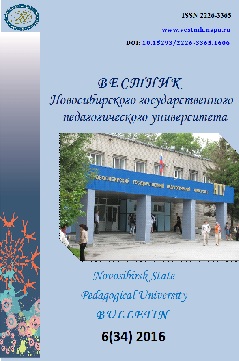Структура прагматического макрокомпонента значения (на материале группы слов, обозначающих национальность)
The structure of the pragmatic macrocomponent of meaning (with the main focus on words denoting nationality)
Author(s): Marina Aleksandrovna LappoSubject(s): Applied Linguistics, Historical Linguistics, Comparative Linguistics
Published by: Новосибирский государственный педагогический университет
Keywords: Lexicography; dictionary; ethnos; nation; people; nationality; pragmatics; semantics; ideological component of meaning; assessment
Summary/Abstract: The research under scrutiny develops the ideas of integral theory of lexical meaning and a number of studies on the structure of the pragmatic macrocomponent (Yu. D. Apresyan, G. N. Sklyarevskaya, V. N. Telia, E. Yu. Bulygina, T. A. Tripolskaya). In order to identify the structure of the pragmatic macrocomponent of ethnonyms a complex of methods was used: comparison of lexicographical dictionaries’ strategies of different periods and study of the Russian National Corpus. The investigation involves "Dictionary of Russian language" edited by D. N. Ushakov (19351940), "Dictionary of Modern Russian literary language", edited by V. I. Chernysheva (19481965), "Dictionary of the Russian Language" edited by A. P. Evgeneva (19811984), dictionaries and encyclopedias of different periods of time and about 2,000 con-texts from the Corpus.The purpose of this article is to describe the structure of the pragmatic component of eth-nonyms, the ways of fixing this semantics in dictionaries and realization in the modern Russian discourse. It is established, firstly, that academic Russian dictionaries present ethnonyms as neutral lexemes in the interpretation area, and in some cases in the illustration area a pragmat-ic context is applied. Ideological microcomponent is often revealed while comparing dictionaries of different time periods. Secondly, the structure of the pragmatic macrocomponent of nomi-nations on the national basis includes estimating microcomponents and ideological values. In its turn, the ideological microcomponent includes such components as closeness, farness, alienness, hostility, and evaluation microcomponent includes such components as developed / undeveloped nation, which determines its position in the scale of prestige, usefulness and / or ac-cepting – a kind of ranking of nations. The level of development is supported by a set of particular judgments (ethical and rational), representing national stereotypes.
Journal: Вестник Новосибирского государственного педагогического университета
- Issue Year: 6/2016
- Issue No: 6
- Page Range: 186-200
- Page Count: 15
- Language: Russian

